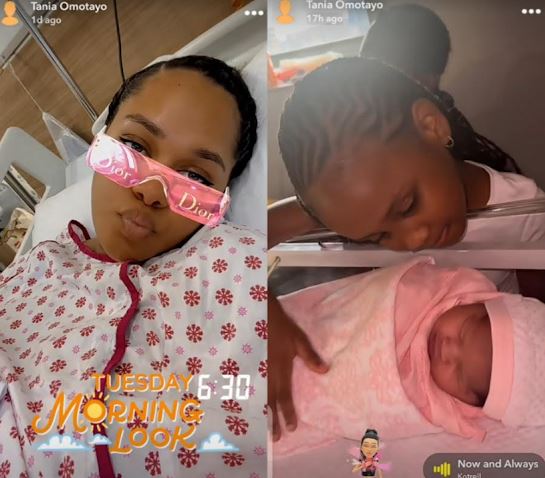
SUVA - Overlooking the clear waters of the South Pacific, a cyclone of controversy was about to descend on Fiji’s Pearl Resort & Spa. Standing on stage clutching a bouquet of flowers, 24-year-old MBA student Manshika Prasad had just been crowned Miss Fiji. But soon after, according to one of the judges, things at the beauty pageant “turned really ugly”.
Ugly is potentially an understatement: what unfolded over the next few days would see beauty queens crowned and unseated, wild allegations thrown around and eventually the emergence of a shadowy figure with a very personal connection to one of the contestants. Ms Prasad first found out something was wrong two days after her win, when Miss Universe Fiji (MUF) issued a press release. It said a “serious breach of principles” had occurred, and “revised results” would be made public shortly.

A couple of hours later, Ms Prasad was told she wouldn’t be travelling to Mexico to compete for the Miss Universe title in November. Instead, runner-up Nadine Roberts, a 30-year-old model and property developer from Sydney, whose mother is Fijian, would take her place. The press release alleged the “correct procedures” had not been followed, and that Ms Prasad had been chosen in a rigged vote which favoured a “Fiji Indian” contestant to win because it would bring financial benefits to the event’s manager.
A distraught Ms Prasad issued a statement saying she would be taking a break from social media, but warned that there was “so much the public did not know about”. The new queen, meanwhile, offered a message of support. “We are all impacted by this,” Ms Roberts wrote on Instagram, before thanking Miss Universe Fiji for its “swift action”.
But those who took part in the contest were not satisfied: there were too many things that didn’t add up. “Everything had been running so smoothly,” says Melissa White, one of seven judges on the panel. A marine biologist by trade, she had been flown in from New Zealand to weigh in on the charity and environmental aspects of the contest.
“It was such a great night, such a successful show. So many people were saying they’d never seen pageant girls get along so well,” Ms White tells the BBC. As the competition drew to a climax on Friday night, the judges were asked to write down the name of who they thought ought to be the next Miss Fiji.
“By this stage, Manshika Prasad was the clear winner,” says Jennifer Chan, another judge, who’s a US-based TV host and style and beauty expert. “Not only based on what she presented on stage but also how she interacted with the other girls, how she photographed, how she modelled.” Ms Chan says she was “100% confident” that Ms Prasad was the strongest candidate to represent Fiji.
Enough of her fellow judges agreed and Ms Prasad was declared the winner - receiving four of the seven votes. But as the newly-crowned Miss Universe Fiji stood on stage, beaming in her sparkling tiara, the judges sensed something was wrong. To her right, Nadine Roberts - wearing her runners-up sash was “seething”, alleges Ms Chan.
“I remember going to bed thinking, how could someone feel so entitled to win? “You win some, you lose some. She’s a seasoned beauty pageant contestant - surely she knew that?” The next day, Ms Prasad took a celebratory boat trip with the judges. “She was just in awe, saying: my life will be changed now,” says Ms Chan.
“She’s the embodiment of that good-hearted person who deserves it - it just affirmed to me that I’d picked the right girl.” But there had still been no official confirmation of Ms Prasad’s victory. Not only this - one of the judges was conspicuously absent from the trip: Riri Febriani, who was representing Lux Projects, the company that bought the licence to hold Miss Universe in Fiji.
“I remember thinking that was odd,” says Ms White, who shared a room with Ms Febriani. “But she just said she had lots of work to do and she needed to talk to her boss.” Ms Febriani says she didn’t go on the boat trip as she needed to rest - and there’s no way the others would know who she was messaging on her phone.
But Ms White says she worked out her roommate was fielding calls and texts from a man called “Jamie”. Miss Universe is a multi-million-dollar business which operates like a franchise - you need to buy a licence which enables you to use the brand and sell tickets for the event. Those licences are expensive and in small countries it’s hard to find anyone willing to fund a national pageant - which is why Fiji hasn’t entered a contestant since 1981.
But this year, one organisation was willing to buy the licence: property development firm Lux Projects. Ms Febriani was its representative on the judging panel, but also looked after media communications. “I’d got on so well with her, she seemed a very sweet person,” says Ms White.
“But that day when she didn’t come on the boat, her demeanour kind of changed. She just kept saying she was super busy with work, always on the phone with this ‘Jamie’ guy.” It turned out that, despite having Ms Febriani on the panel, Lux Projects was not happy with the outcome of the vote.
Its press release on Sunday said the licensee itself should also get a vote - one which the contracted organiser, Grant Dwyer, had “failed to count”. Lux Projects would have voted for Ms Roberts, bringing the results to a 4-4 tie. What’s more, it said, the licensee also had the “determining vote” - making Ms Roberts the winner.
“Never at any point were we told about an eighth judge or any kind of absentee judge,” says Ms Chan. “It wasn’t on the website, it wasn’t anywhere. Besides, how can you vote on a contest if you’re not even there?” Ms White was also suspicious.
“I did some digging and it turns out that Lux Projects was closely associated with an Australian businessman called Jamie McIntyre,” says Ms White. “And Jamie McIntyre,” she told the BBC, “is married to Nadine Roberts.”.














